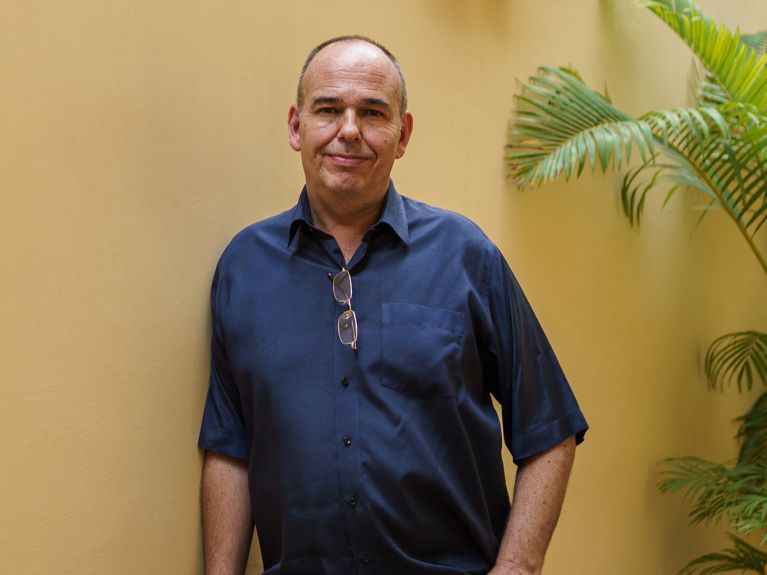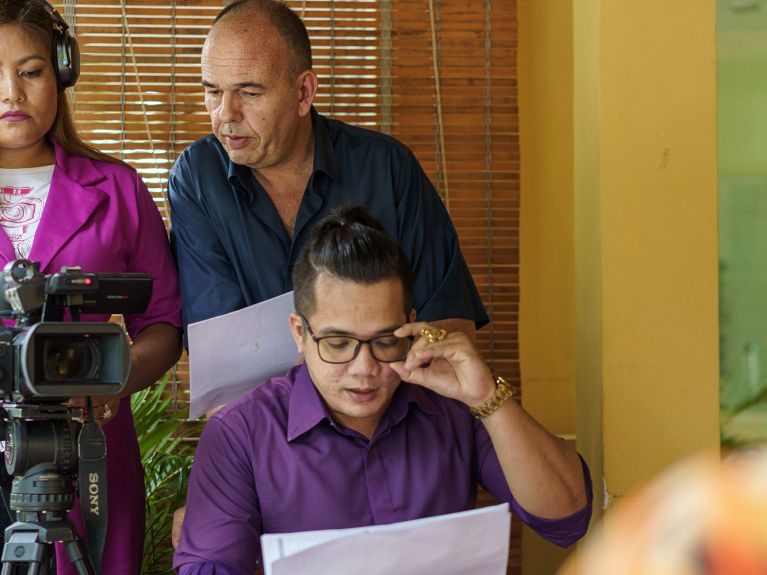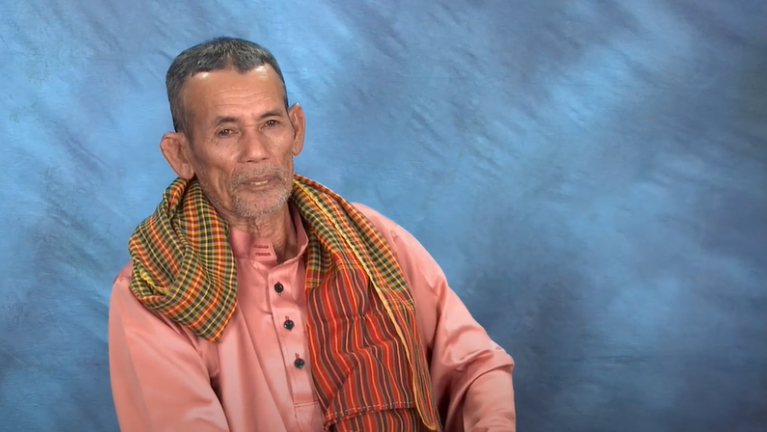Narrating as a way of coping with trauma in Cambodia
In the project “Virtual Memorial”, German journalist Nicolaus Mesterharm gives victims of the Khmer Rouge regime a voice.

The civil war in Cambodia ended in 1975 – yet the people continue to suffer its consequences to this day. The civil war was followed by the Khmer Rouge regime of terror, which claimed the lives of between 1.4 and 2.2 million people out of a population of around 8 million. Half of the victims were murdered, others died of hunger, deprivation or forced labour. The Khmer Rouge were driven out by Vietnamese troops in 1979, but they continued to wage an underground war of terror against the population and the new government until 1998. It was not until the end of 1998 that the last of the combat units capitulated. The former regime’s reign of terror left the population traumatised.
German journalist Nicolaus Mesterharm is now seeking to give the victims of the terror regime a voice. He travelled to the Cambodian capital of Phnom Penh for the first time in 2000, two years after the last Khmer Rouge had surrendered and their leader Pol Pot had died. “It was as if people really were breathing a sigh of relief for the first time,” the 53-year-old recalls. “Everyone smiled at you, people wanted to talk.” At the time, Mesterharm was producing a television documentary about the distressing HIV epidemic in the country: he came to appreciate the culture and the people and went on to settle permanently in the city five years later.
Many of those affected feel a need to talk about what they have experienced.
Today, the journalist and filmmaker runs the German-Cambodian Cultural Center Meta House. Mesterharm has now turned his attention to a re-appraisal of the Khmer Rouge era; talking – and above all listening – continue to be key elements of his work. In the project “Virtual Memorial”, he and his team enable contemporary witnesses to bear witness in front of the camera for posterity. Many of those affected feel the need to talk about what they experienced. “Victims get to tell their own story to young people,” says Mesterharm, emphasising that the interviewees are not persuaded to appear, nor are they paid to do so. “The more they talk, the better they are able to overcome the trauma they have experienced.”
Victims of the Khmer Rouge era tell their story
The project aims to create a virtual memory platform that contributes to a re-appraisal of the history of the Khmer Rouge, appealing to young people in particular. In addition, contemporary witnesses are given a platform on which to tell their stories. “Virtual Memorial” is supported under the German funding programme zivik with funds provided by the Federal Foreign Office. Zivik helps civil actors worldwide prevent crises, overcome conflicts, create peaceful social and political systems and bring about stability.

“Initially I was shocked at the scant interest paid by a lot of young people in Cambodia to the Khmer Rouge era,” says Mesterharm. One impetus behind his work lies in his own eventful family history. His Jewish maternal grandparents were murdered by the Nazis. The husband of the woman who later adopted his mother had betrayed his grandparents. Mesterharm seeks to understand how people come to do cruel things to others. “More than anything, the question I pursue is: What would I have done if I had been there?” For him, the most important goal of his work is to ensure that history doesn’t repeat itself.
Dieses YouTube-Video kann in einem neuen Tab abgespielt werden
YouTube öffnenThird party content
We use YouTube to embed content that may collect data about your activity. Please review the details and accept the service to see this content.
Open consent formGerman-Cambodian Cultural Center
Shortly after Mesterharm settled in Cambodia, he and his Cambodian wife moved into a house with a large room on the ground floor and a beautiful roof-top terrace. “We came up with the idea of turning it into a kind of Berlin-style salon, showing art exhibitions downstairs and films upstairs." What began in 2005 among friends is still very much the programme today. The Meta House has since relocated and is now a Goethe Centre – a partner to the Goethe-Institut. The dynamic, vibrant atmosphere of the cultural centre and the dialogue with young people in the city provide a welcome balance to Mesterharm’s memory work.



